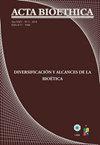General Data Protection Regulation and Horizon 2020 Ethics Review Process: Ethics Compliance under GDPR
IF 0.3
4区 哲学
引用次数: 2
Abstract
The present manuscript examines the new ethics data protection requirements introduced for the research projects funded by the European Programme Horizon 2020.Initially, reference is made to the basic data protection principles introduced by the General Data Protection Regulation (GDPR) and the derogations permitted in the research field in favor of the science advancement. Although these derogations are subject to a number of safeguards to protect personal data, new ethics requirements are introduced for research projects funded by the European Programme Horizon 2020. The aim of these safeguards is the increased transparency and accountability at the data processing and the consequent enhanced protection of the individuals’ rights. These requirements are geared to the main research ethics postulate, which requires free, voluntary and informed participation of the research subject.Under these new requirements, Horizon 2020 beneficiaries/applicants must comply with a set of predefined standards, reflecting their ethical and legal obligations, provide a detailed and precise description of the technical and organisational measures that will be implemented in order to safeguard the rights of the research participants and also demonstrate their observance. In addition, depending on the type of the data being processed and the data processing techniques, the H2020 applicants/beneficiaries may need to provide a number of additional documents/explanations and implement further measures.通用数据保护条例和地平线2020道德审查过程:GDPR下的道德合规
目前的手稿审查了由欧洲计划地平线2020资助的研究项目引入的新的伦理数据保护要求。最初,参考了通用数据保护条例(GDPR)引入的基本数据保护原则,以及为了科学进步而允许在研究领域进行的克减。尽管这些减损受到一些保护个人数据的保障措施的约束,但欧洲计划地平线2020资助的研究项目引入了新的道德要求。这些保障措施的目的是提高数据处理的透明度和问责制,从而加强对个人权利的保护。这些要求与主要的研究伦理假设相一致,即要求研究对象自由、自愿和知情地参与。在这些新要求下,Horizon 2020的受益人/申请人必须遵守一套预定义的标准,反映他们的道德和法律义务,提供详细和准确的技术和组织措施的描述,这些措施将被实施,以保护研究参与者的权利,并证明他们遵守了这些标准。此外,根据正在处理的数据类型和数据处理技术,H2020申请人/受益人可能需要提供一些额外的文件/解释并实施进一步的措施。
本文章由计算机程序翻译,如有差异,请以英文原文为准。
求助全文
约1分钟内获得全文
求助全文
来源期刊

Acta Bioethica
医学-卫生政策
CiteScore
0.60
自引率
0.00%
发文量
22
审稿时长
1 months
期刊介绍:
Acta Bioethica is a biannual publication by the Interdisciplinary Center for Studies in Bioethics of the University of Chile (ISSN 0717-5906, press edition, y 1726-569-X, electronic edition), which publishes in three languages: Spanish, English and Portuguese.
Indexed in Science Citation Index (SCI), Scopus, Lilacs, SciELO y Latindex, and in database from several Institutions; it constitutes a pluralistic source of perspectives and an important tribune which accepts the contributions of authors compromised with the interdisciplinary study of ethical determinants and consequences of techno scientific research.
 求助内容:
求助内容: 应助结果提醒方式:
应助结果提醒方式:


